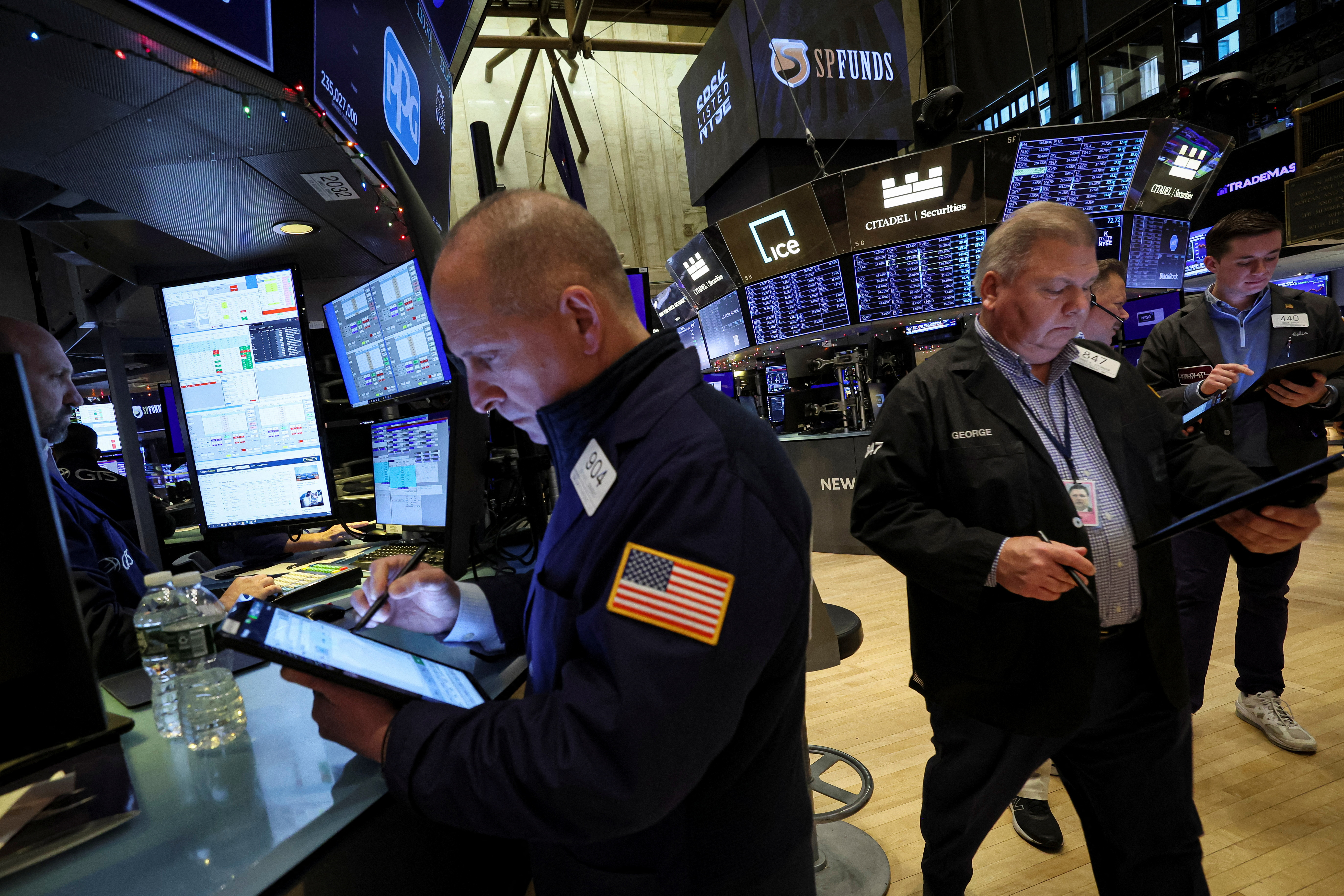
U.S. stock indexes were set to open lower on Wednesday after warnings of a looming recession from major Wall Street bankers offset optimism around China relaxing its strict zero-COVID rules.
Top executives at Goldman Sachs Group Inc (GS.N), JPMorgan Chase & Co (JPM.N) and Bank of America Corp (BAC.N) said on Tuesday that inflation would erode consumer spending power and a mild to more pronounced recession was likely ahead.
Fears of a recession due to the U.S. Federal Reserve’s aggressive rate hikes to curb inflation pulled the S&P 500 (.SPX) lower for a fourth straight session on Tuesday, with all major Wall Street indexes ending down 1%-2%.
“Expectations are beginning to unravel a little bit as the market realizes that the Fed may have to maintain rates at a higher level for longer than it had hoped and this is placing a more downward pressure on the markets,” said Jason Pride, chief investment officer for private wealth at Glenmede in Philadelphia.
“From the bigger picture, the Fed has hiked rates to a point where markets are expecting monetary policy to be restrictive enough to cause a mild recession.”
The CBOE volatility index (.VIX), also known as Wall Street’s fear gauge, rose to a two-week high at 23.01 points amid increased investor anxiety.
Money market participants see a 91% chance that the Fed will increase its key benchmark rate by 50 basis point in December to 4.25%-4.50%, with rates peaking in May 2023 at 4.95%.
More economic data, including weekly jobless claims, producer price index and the University of Michigan’s consumer sentiment survey this week, will be on the watch list for clues on what to expect from the Fed on Dec. 14.
At 8:29 a.m. ET, Dow e-minis were down 85 points, or 0.25%, S&P 500 e-minis were down 19 points, or 0.48%, and Nasdaq 100 e-minis were down 94.75 points, or 0.82%.
Concerns around a steep rise in borrowing costs have boosted the dollar and dented demand for risk assets such as equities this year, with the S&P 500 on course to snap a three-year winning streak, down 17.3% so far in 2022.
Elsewhere, China announced the most sweeping changes to its tough anti-COVID regime, including allowing infected people with mild or no symptoms to quarantine at home and dropping testing for domestic traveling, following protests against COVID controls.
However, U.S.-listed Chinese stocks such as NetEase Inc , Alibaba Group Holding Ltd and JD.com Inc tumbled between 2.5% and 5.2% in premarket trading after data showed China’s trade shrank the most in 2-1/2 years in November.
Apple Inc (AAPL.O) fell 1% as Morgan Stanley cut its estimates for the firm’s December-quarter iPhone shipment after chip maker Foxconn (2317.TW) flagged production delay.
Tesla Inc (TSLA.O) slumped 2.8% and was on track to fall for a third straight session over production loss worries at its Shanghai plant.
Carvana Co (CVNA.N) tumbled 25.5% after Wedbush downgraded the used-car retailer’s stock to “underperform” from “neutral” and pruned its price target to $1.

